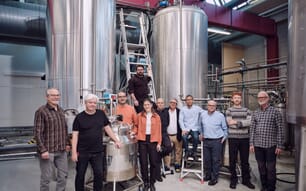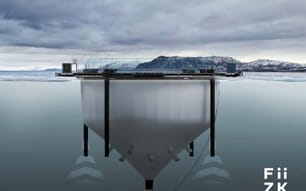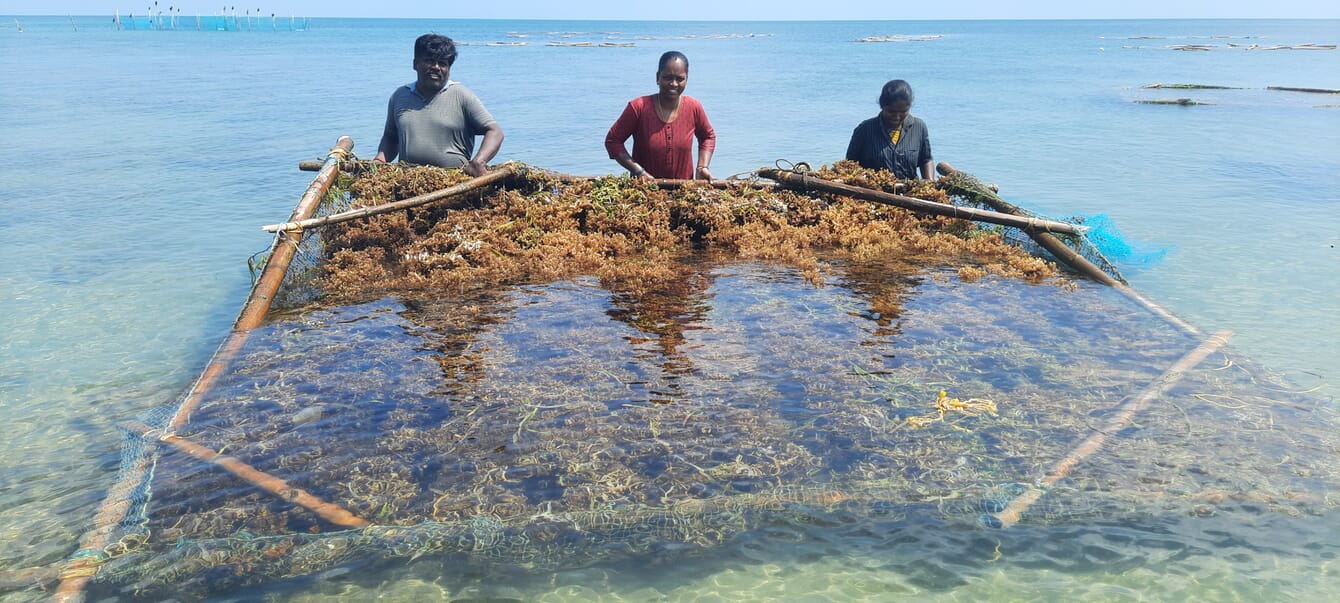
© MarinElixirs
Farming the ocean is – unsurprisingly – very different from farming on land. Soil stays in place and trees don’t move around, but the sea is constantly shifting. Currents shift, chemistry fluctuates and entire ecosystems drift in and out. Yet while land-based agriculture has generations of tools to predict and manage conditions, seaweed farmers often work blind. One bad week can wipe out months of effort and, for seaweed farmers, scaling up can be a major hurdle.
MarinElixirs*, a US based startup with its initial focus on India is working along 100 km of the Coromandel coast near Mandapam, wants to tackle that problem. With ambitions to one day build a 10,000-square-kilometre farm, the company has designed a vertically-integrated model that spans the full value chain – from seed bank to processing. At its core is something new to seaweed farming: an ocean data intelligence platform meant to give cultivators the kind of guidance that soil data long ago brought to agriculture.
“We really needed to start understanding our climatic conditions – not just from the climate, but also from the water, so we needed some ocean data. Just like if you're a farmer and you need field data,” explains founder of MarinElixirs, Venkat Bahl. “We started manually collecting data about 2 years ago and have now compiled a proprietary database across various cultivation sites. We quickly realised that we need more data to be able to better monitor and predict ocean conditions.”
The company also works directly with coastal communities – training cultivators, buying back harvests and converting the biomass into higher-value products.
From tech entrepreneur to seaweed farmer
Bahl, a California-based entrepreneur born in India, built his career in IoT and process automation, working across startups and multinationals. After achieving several successful exits in the United States, he began looking for a challenge that combined his interests in the ocean, agriculture and India. He found it in seaweed.
“Typically, I look at large industries that are established but haven't been disrupted with new thinking… I didn't want to go in and harvest [wild] seaweed because I feel that that is not really sustainable. So instead I questioned, can we really cultivate seaweed?” says Bahl.
Before trying cultivation himself, Bahl spent months on research, site visits and conversations. With no background in seaweed, he said he was free to challenge assumptions and test overlooked methods. He described his approach as “first principles” – questioning everything, a habit he carried over from earlier ventures.
“My of-repeated joke is, you know, if you want to learn how to lose seaweed, call me – I'll give you a million reasons how to do that,” he jokes. “But from that, came a lot of learning.”
MarinElixirs eventually bought and restructured a dormant Indian seaweed company, keeping only its licences and contacts. The focus turned to Kappaphycus alvarezii, a tropical red macroalgae widely farmed in India.
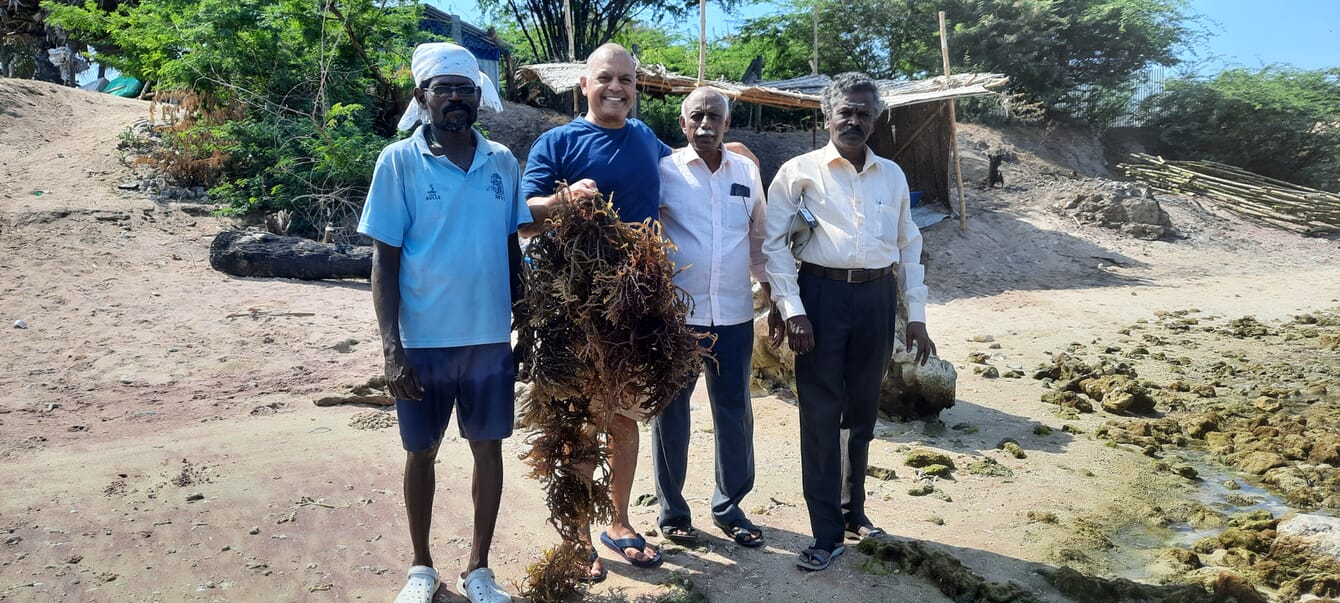
© MarinElixirs
“We focused on Kappaphycus for two reasons. One is it's a tropical seaweed and I wanted to do something in India. But what I liked about Kappaphycus is that it is a cultivable seaweed with growth rates that are very good and the season's relatively long. While we're really focused on communities, we're also really focused on revenues and profits,” explains Bahl.
Since launching in 2023, the company has set up a small R&D farm, created India’s only algae seed bank, partnered with 11 coastal villages and built processing facilities that convert fresh harvests into products such as biochar biostimulant granules. It recently raised an oversubscribed funding round led by Hatch Blue and Rainmatter, but chose not to accept the full amount in order to limit dilution while maintaining operational and capital efficiency.
“It is easy to spend money fast if you over capitalise, and you lose out on creativity and unit economics,” explains Bahl.
Turning the ocean into data
Bahl’s background in technology soon shaped his approach to seaweed. What was missing, he realised, was reliable data to guide farmers’ decisions. Existing tools didn’t fit the job, so MarinElixirs built its own “ocean intelligence platform”.
In his system, nearshore sensors mounted on buoys measure temperature, pH, oxygen and more, and “talk” to each other in a mesh network. Using computing, the sensors process data locally and send farmers only what they need – for example when to seed, harvest or protect their crops.
“We can't control the oceans, but we can react to them. The idea is that we take this [ocean intelligence] and we push it out. It is a mobile-first platform, and so we send this out to our cultivators and we just tell them, ‘listen, guys, here's some advisory services for what you should be doing in order to maximise your yields and minimise your losses’,” says Bahl.
The company is still refining sensor placement but expects to deploy about three sensors per kilometre along the coast and through the water column.
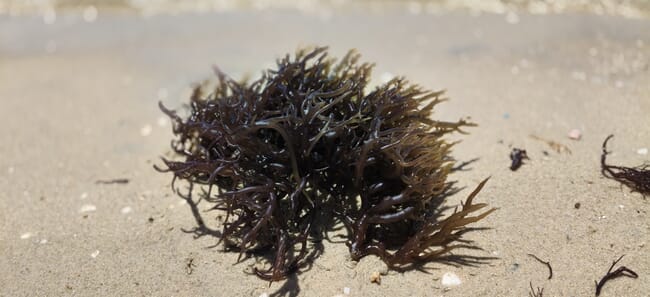
© MarinElixirs
Processing and product range: fresh is best
Unlike most of the seaweed farming industry, which purely dries seaweed, MarinElixirs processes it fresh within six hours of cultivation using its proprietary system, arguing that this helps preserve nutrients which are often lost during drying and transport.
“What happens with seaweed is, as you dry it, the minerals and macronutrients crystallise on the outside of the seaweed and then when you transport it… a lot of the nutrients then literally just fall off. In tests, some of our customers have said they were up to 60 percent better in terms of some of our macronutrient content,” explains Bahl.
To make the system viable at scale, the firm is building small, low-cost rapidly deployable processing units close to farms. Each modular facility can handle around 20 tonnes of biomass a day, and the design can be replicated as production expands.
MarinElixirs also maintains India’s only algae seed bank, selecting strains to improve both nutrient content and consistency.
For now, the company’s focus is the biostimulant market. Its plant already produces biochar-based granules and liquid extracts, and has just launched a powder based on their algae extract. Bahl notes that the granules avoid the heavy metal contamination found in some mineral-based products, and the company has already signed customers including global agri-input firms and Indian sugar producers.
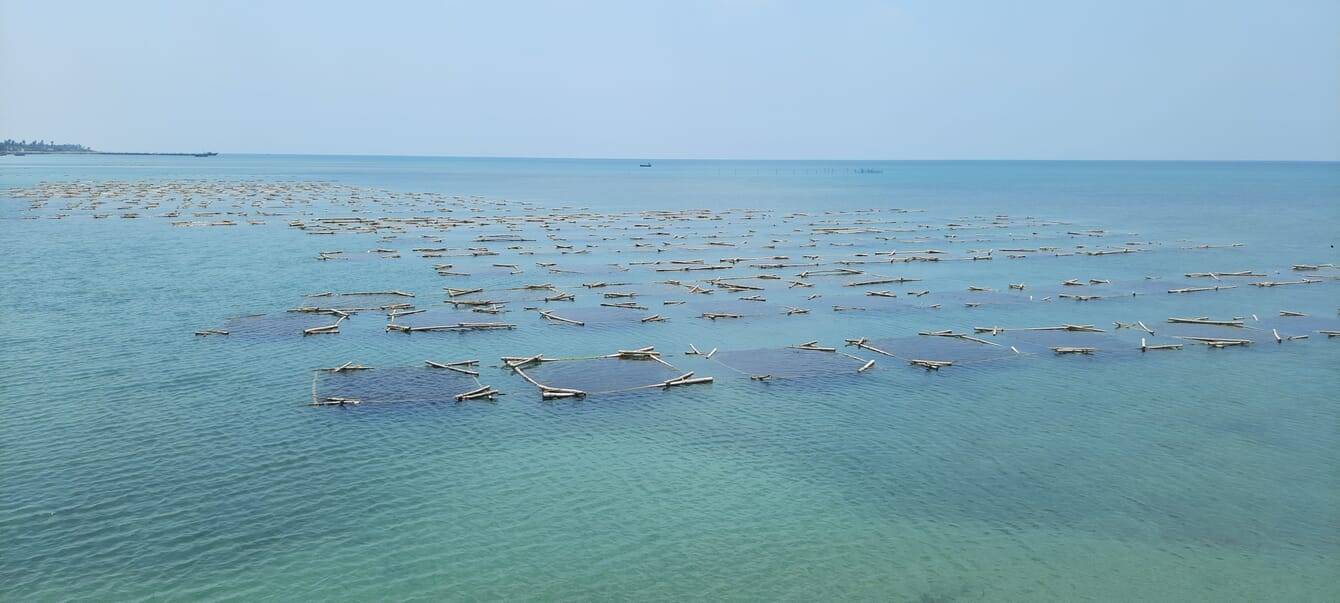
© MarinElixirs
Scaling and future plans
MarinElixirs’ long-term vision is ambitious: a 10,000 km2 farm producing a million tonnes of seaweed a year. For now, the focus is closer to shore. The company is working to expand from 11 to 32 villages, which would boost production and require additional processing units. Bahl expects output to triple over the next three years.
“We grew 22 times from the first year to the second year… We're going to probably triple this year and I foresee us tripling to quadrupling certainly over the next three years,” says Bahl.
International expansion is also under discussion. The company hopes its growing database of ocean conditions could eventually support farmers beyond India by helping predict risks such as bleaching, disease and algal blooms.
Two challenges stand out as MarinElixirs looks to scale. The first is the ocean itself, where shifting conditions can wipe out crops, and the company hopes its database will help farmers manage that risk. The second is expansion across borders, which means dealing with policy barriers and cultural differences.
“There are also going to be socio-economic considerations of each area that we expand to. We've seen that in where we are right now. We're looking to expand into other countries already because our customer base and our demand for our product is growing faster than we can grow our own cultivation… Not to say we won't continue in India, but we have to rapidly add more capacity. So, we already see that there are other policy issues, but none of them are insurmountable,” concludes Bahl.
*MarinElixirs is one of Hatch Blue’s portfolio companies, but The Fish Site retains editorial independence.

